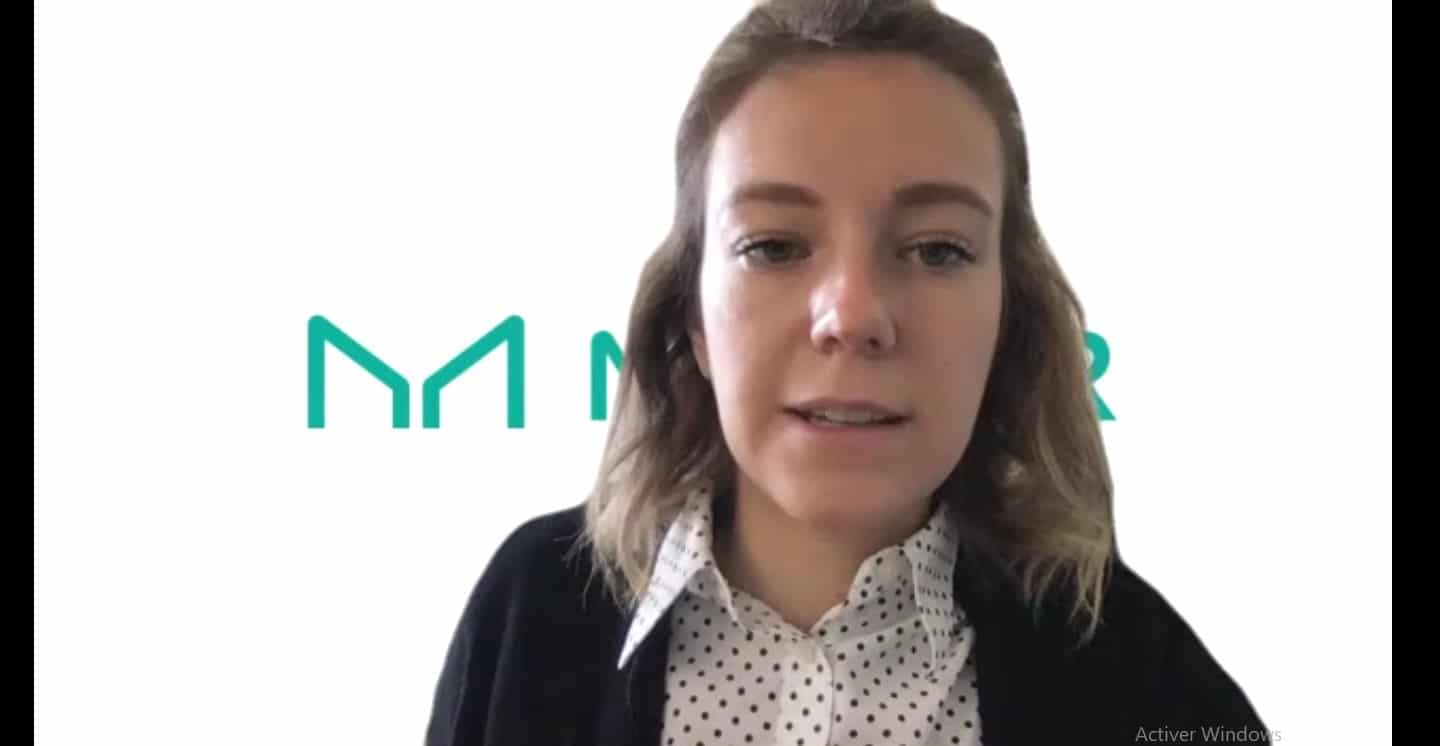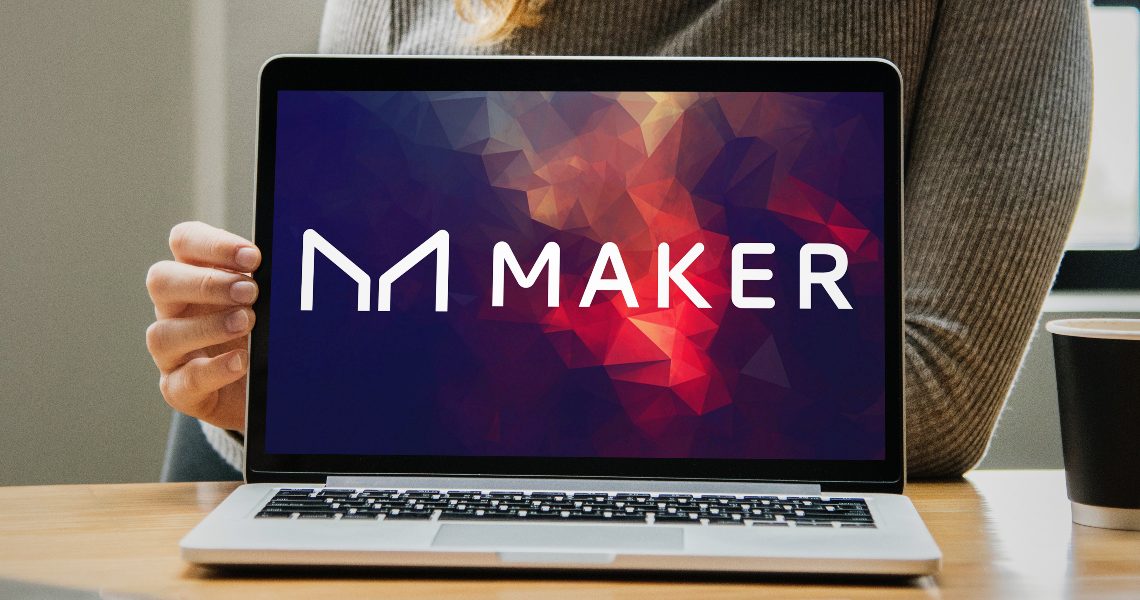The Cryptonomist had the chance to interview Maria Magenes of Maker DAO, the most important DeFi company of the moment, to talk about blockchain technology, scalability, and what can happen if G20 will try to stop stablecoins.
First of all, how is Maker addressing blockchain interoperability?
Ok so, regarding interoperability of the blockchains, of course it is very relevant to achieve growth. Maker, as you probably know, is built on Ethereum, and the smart contracts of the Maker protocol are on Ethereum but they can be used on other mainnets. There are also different sidechains using DAI as the main currency. As I mentioned before, interoperability is really relevant for the growth and we are closely monitoring the major and most promising solutions out there. Of course, this space is moving fast and hopefully we will see more reliable solutions coming out in the near future. For now, we are operating on Ethereum but we are not like a silo and there are some kinds of uses of our protocol and smart contract on other chains.
What did you learn from the crash of the last month?
This is a very good question. Last month, especially on the 12th of March, there was a general crash in the markets and Ethereum, which is our main collateral, dropped its value by 50%. So basically there have been some debt positions (Vaults) liquidated in the wrong way and the protocol was put in a hard position. I think that not only Maker but in general the DeFi community and the whole space learned a lot from this experience. The protocol worked properly, so it was not a problem from a technical point of view, and the human and the technical system resilience were tested and I think they passed the test.
The Maker governance acted quickly and with full confidence that the protocol was working. Both the community and the system are stronger after this experience in my opinion. For sure, there have been some lessons learned from this experience, the first is that it’s very important to have a diverse portfolio of collaterals in order to have more liquidity and diversification, so it’s crucial for the community and the governance to introduce and prioritize the introduction of new collaterals. Also, it’s very important that the governance process is well structured and clear, but also versatile and quick enough to respond to this kind of crisis which I hope won’t happen. We also learned that the reaction and involvement of keepers, of governance, of DAI holders and in general of the community, is fundamental in order to make the protocol and the system work correctly. Another thing that we learned is that the keeper role must be further developed and improved: the community and the governance, must consider issues related to the operational infrastructure behind the keeper role, so that the keeper ecosystem becomes more robust and diversified.
Then I would also add something less technical, something related to the community, which is a topic closer to my job. I must say that this experience highlighted the strength and the passion that characterises this space, the DeFi community, the Maker community. I saw a lot of reactions around the situation, of course not every reaction was good, because several people were hurt by this situation. However, the community helped the DeFi to survive by helping Maker, and I saw a lot of actions taken by the community in this sense, because of course as we know, Maker protocol is somehow the backbone of DeFi. So this is very good to see and it’s also one of the reasons why I love to work in this space.

How do you encourage stakeholders to keep holding the MKR token?
We are doing several actions towards this matter, one of them is Voting Delegates, so basically the governance is voting for this delegated voting, that is one way the Foundation believes we will see more activity among Maker holders. So what are delegates? Delegates will act as representatives of MKR holders, who choose not to vote directly but to basically give their support to these delegates. Delegates can be anyone who decides to state their vision for the protocol and the ways they intend to vote on the key issues and Maker (MKR) holders can vote for these delegates with their tokens. They don’t give up the control of their tokens, but they keep them, they just vote for their delegate and the delegate basically votes on their behalf. This is an easy and effective way of making sure that this kind of people, the small holders, can make their voice heard in the voting and in the governance in general. So this is one of the actions, and also the governance and the community are thinking about several actions in this sense to encourage the participation in the governance processes and the holding of our token.
What do you think is the main utility of DAI and its ecosystem?
DAI is not just speculation as we see in the first world countries, because in the developed countries, in Italy for example I see a lot of use of DAI to leverage on the collateral basically, but there a lot of uses which could be a bit hidden. The main advantage of DAI is, in my opinion, the transparency and the financial independence that it provides. With regard to transparency, DAI and the smart contracts are completely built on Ethereum, so basically users have complete access to the smart contracts and they can know everything about DAI and the system behind it. DAI is also a stablecoin and is completely decentralized, so it gives financial independence to, for example, the unbanked population and can help people living in the high-inflated countries like Argentina and Venezuela in South America. They use DAI as a store of value instead of their currency because it is stable and it gives, not only DAI but DeFi in general, access to financial services which would not be available to the unbanked people – because they would need to have a bank account as well as a credit history e.g. for receiving loans. All of these services are provided only by having an internet connection and a smartphone to access the internet. Other benefits of DAI are that it is trustless because it can be self-generated, there’s no third-party involved and it’s efficient as it is very fast and convenient. There’s another benefit of DAI which is the Dai Savings Rate, introduced in November with the MCD, so basically it is possible to earn the DSR by holding DAI without any fee involved, no geographic constraint and no liquidity impediments.
If you have to solve only one problem throughout the industry to reach maturity, what would it be?
I will respond to this from a marketing point of view, since I have a marketing background. The main problem from my point of view is the comprehension of this industry and this space by the mass market. When people don’t fully understand what they are using, it’s very difficult to reach the mass audience, the mass adoption. I see some similarity to the internet adoption in this story, so internet at first was not needed, it was just a super cool new technology and people at first said: “I can go ahead with my life without this, because I don’t understand, I need a computer, it’s difficult…”, now we could not imagine a life without the internet. In DeFi, we are seeing a lot of improvement both in the UX and in the communications, so now the comprehension has very much improved with respect to 1 year ago, when I joined the industry. However, there are still too many technicalities in the communications, also in the UX sometimes, for example when you need to install MetaMask. We are talking to people, we are not talking only to crypto audience, in order to reach mass adoption you need to be very very clear and hide the technology behind it, because nobody cares in my opinion. I mean of course, the people working in the space care, but my mom, she doesn’t care, she just wants an easy service. DeFi has a huge potential and it’s super convenient. Institutions are also starting to understand it, but it needs to be easier in my opinion. So it’s something that we will achieve for sure, but it will take time, the easiness is the problem.
Are you concerned about blockchain scalability? And where best to focus the development to solve this problem in general, related for example to the Ethereum blockchain you use?
The scalability will be probably reached with Ethereum 2.0, but we aren’t even sure. In general, I think that until scalability is reached, the DeFi models need to have measures incorporated on the protocol level, to deal with the potential congestion of Ethereum that we saw for example recently. So Maker protocol’s governance took several actions after March 12th, which are improving the protocol to address this scalability problem and the problem of the congestion of the network, examples include the introduction of USDC as collateral to alleviate liquidity pressure, the adjustment of the auction parameters like auctions lasting longer and the adjustment of the risk parameter, these type of actions.
What do you think about the G20 concerns about stablecoins? What if they will try to stop them?
To give a bit of background, after the announcement of Libra in June 2019, the G20 called on the FSB (Financial Stability Board) to examine regulatory issues raised by so called “global stablecoin” (GSC) arrangements and to advise on multilateral responses.
FSB produced a consultative document issued on 14 April 2020, which analyzed the phenomenon of stablecoins and proposed high-level policy recommendations for national lawmakers and regulators. The Maker Foundation has taken part in a meeting of the working group in Singapore in February 2020 as one of the few selected market participants who were asked for feedback, and is in further contact with the authors of the consultative document. Regulations are extremely important for Maker as well as for the whole DeFi space, and the Foundation uses to work hand-in-hand with the FSB, and other policymakers and regulatory organizations around the globe, on stablecoin-related matters.
There are a number of positive trends in the report which make this a good and robust starting proposal for a policy framework which may provide an opportunity for the further growth of stablecoin, rather than a “ban of stablecoins” as we read in some media releases. In the document they recognized the “beneficial financial and technological innovation” but with risks that have to be recognized and regulated. Maker Foundation fully supports the “same business same risk, same rules”.
Also, the document is open for feedbacks up to July, as the final version will be released in October. The Maker Foundation will continue to work with the FSB and other relevant institutions and commit its knowledge and expertise in shaping the global policy framework for stablecoins.



